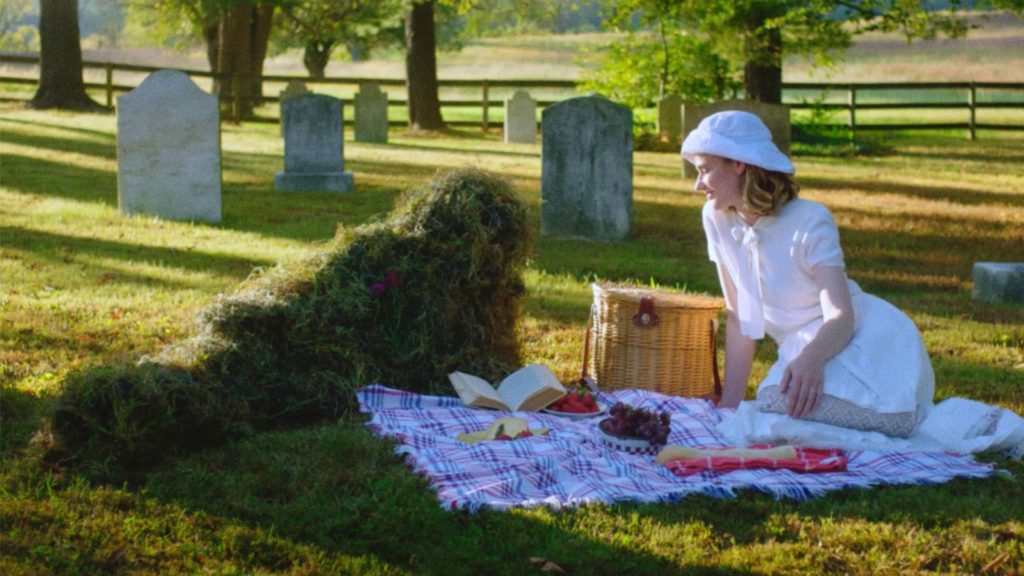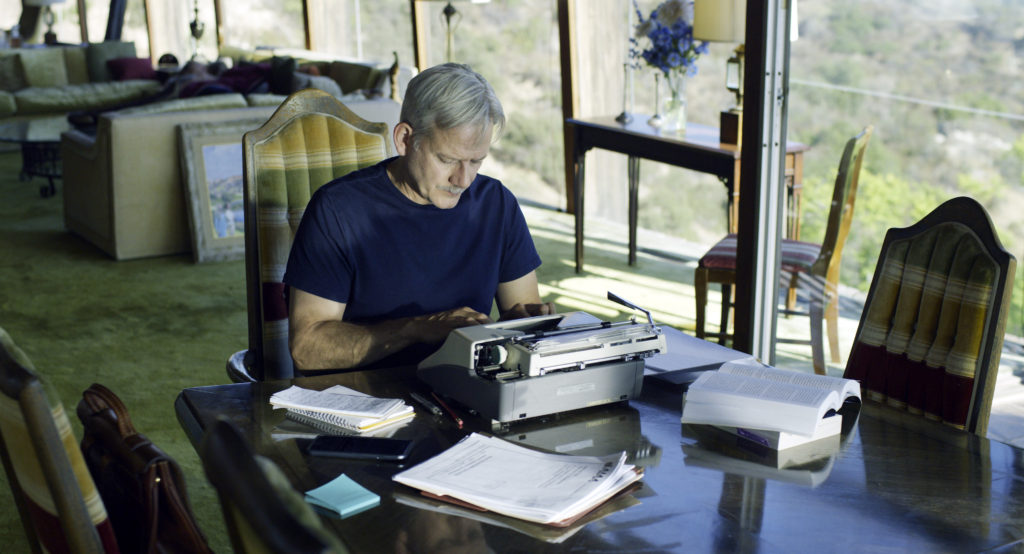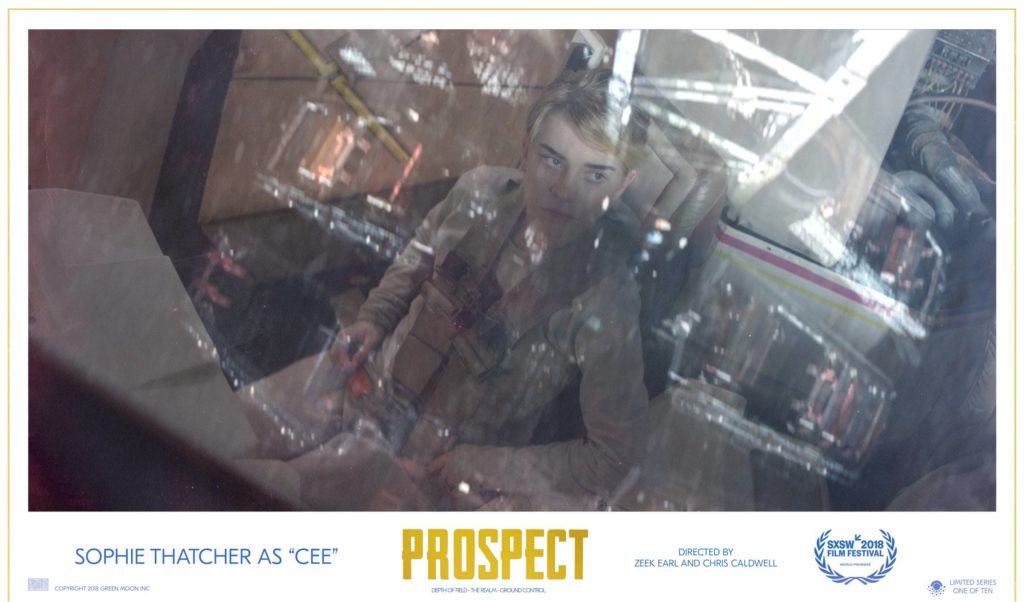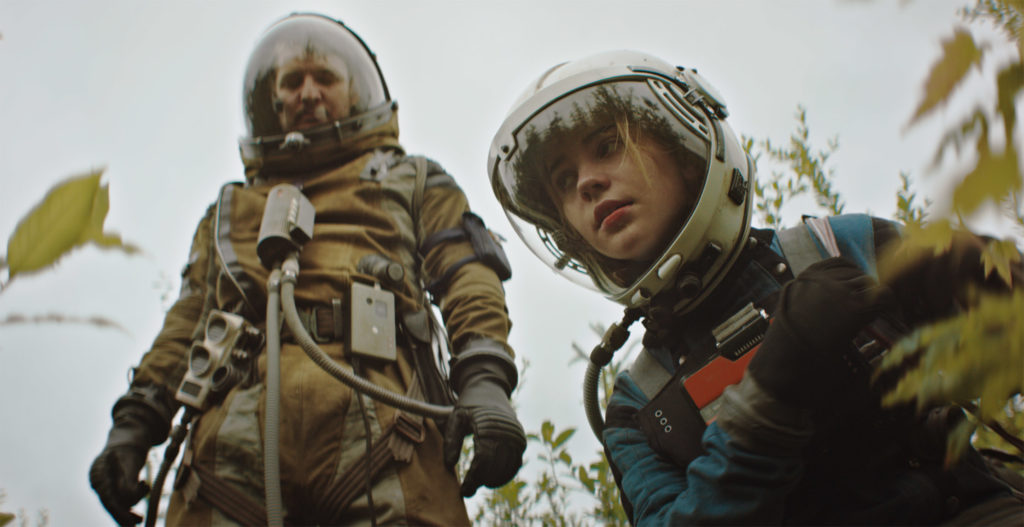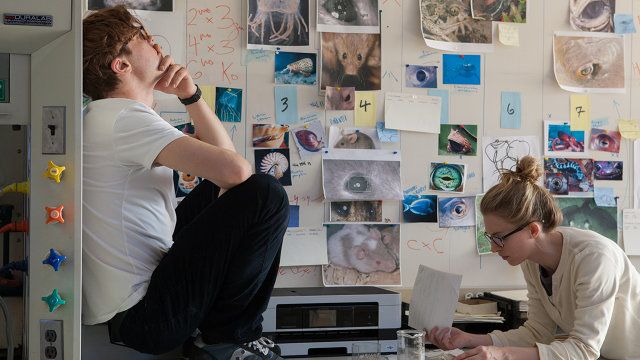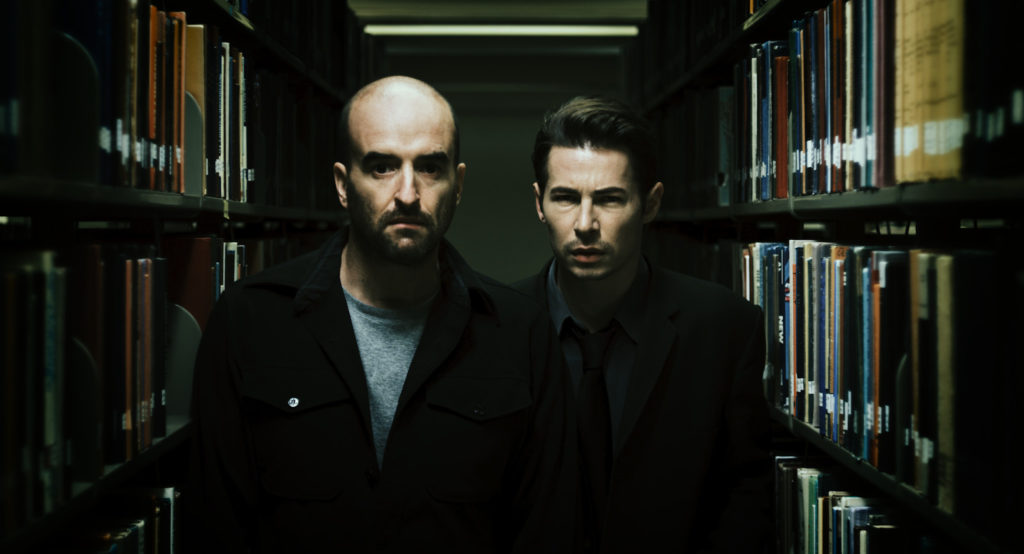
I don’t think I’ve ever before described a movie-going experience as “punishing”, but here goes. After being assaulted by the French sci fi horror film Titane, which purports to be two portraits of abnormal psychology, I felt beaten, even tortured.
The headstrong child Alexia causes an auto accident and gets a platinum plate in her skull. She grows into a stripper at car shows (Agathe Rousselle), and has a serious automobile fetish. In Titane’s most notorious scene, Alexia gives a new meaning to auto-eroticism by having sex with, and becoming impregnated by, a Cadillac.
Alexia is also a serial killer, and her second signature fetish is impaling her victims. She keeps a spike in her hair for this purpose, but a bar stool will suffice, too. One victim gets away and indemnified her, so Alexia changed her appearance and goes underground as a young man. Here, she happens on a beefy fire captain (Vincent Lindon), who is grieving for a son who disappeared ten years ago, and adopts Alexia as his long lost, now recovered, son.
Through much of Titane, we are asking WTF is going on? Writer-diretor Julia Ducournau keeps surprising us by piling on segments that are SO twisted and bizarre, that most of us could not imagine them.
Most of Titane is intentionally unpleasant to watch. Characters bleed blood, unless they bleed motor oil. Bones crunch, mouths froth and bellies are picked open. The murders are gory, and Alexia self mutilates as her pregnancy progresses, right up to an excruciating birth scene.
Oh, and let me be very clear about this, Titane is NOT a date movie.
The character of Alexia is just a bad seed, a feral maniac. The character of the troubled fire captain is also bizarre, but he’s more psychologically interesting. He insists that everyone else accept what is clearly a delusion. Does he understand that this is not his son?
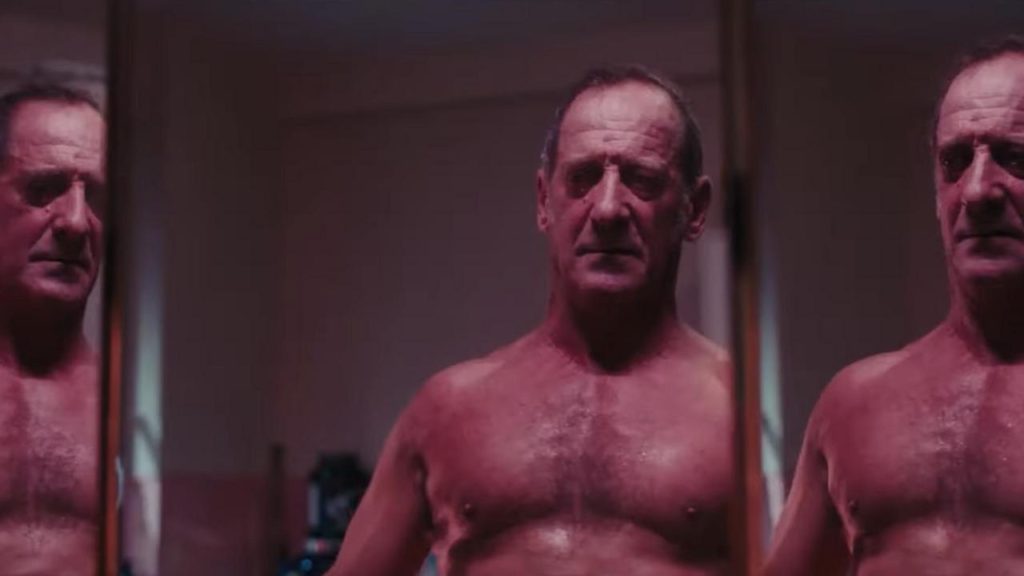
Lindon (who muscled up for the role) is superb in this crazy role, which requires him to exude command authority and also the deepest vulnerability. It’s a very brave performance, and it works, for example, in his solo dance to She’s Not There.
Myriem Akheddiou is also excellent in a brief scene as the mother of the fire captain’s missing child.
I know my share of American firefighters. They would be surprised by Titane’s French firefighters, who let off steam by getting high and holding raves in the firehouse, all hypnotically dancing to electronica.
Notably, Titane won the Palme d’Or at the 2021 Cannes Film Festival. While one of the two most prestigious prizes in cinema (along with the Best Picture Oscar), the Palme d’Or is no guarantee that a movie is great – or even watchable. On the positive side, recent winners have included the superb Parasite, Shoplifters, Amour, Blue Is the Warmest Color and 4 Months, 3 Weeks and 2 Days. On the unfathomably bad side, cinematic excrement like The White Ribbon, The Tree of Life, Dancer in the Dark, and now Titane – has also won.
The critical consensus is far too kind to Titane. Many critics correctly label what had come out of Julia Ducournau’s mind as “demented” and then credit her for the visual excess in telling an unbearably icky story. It’s just demented, excessive and icky.


